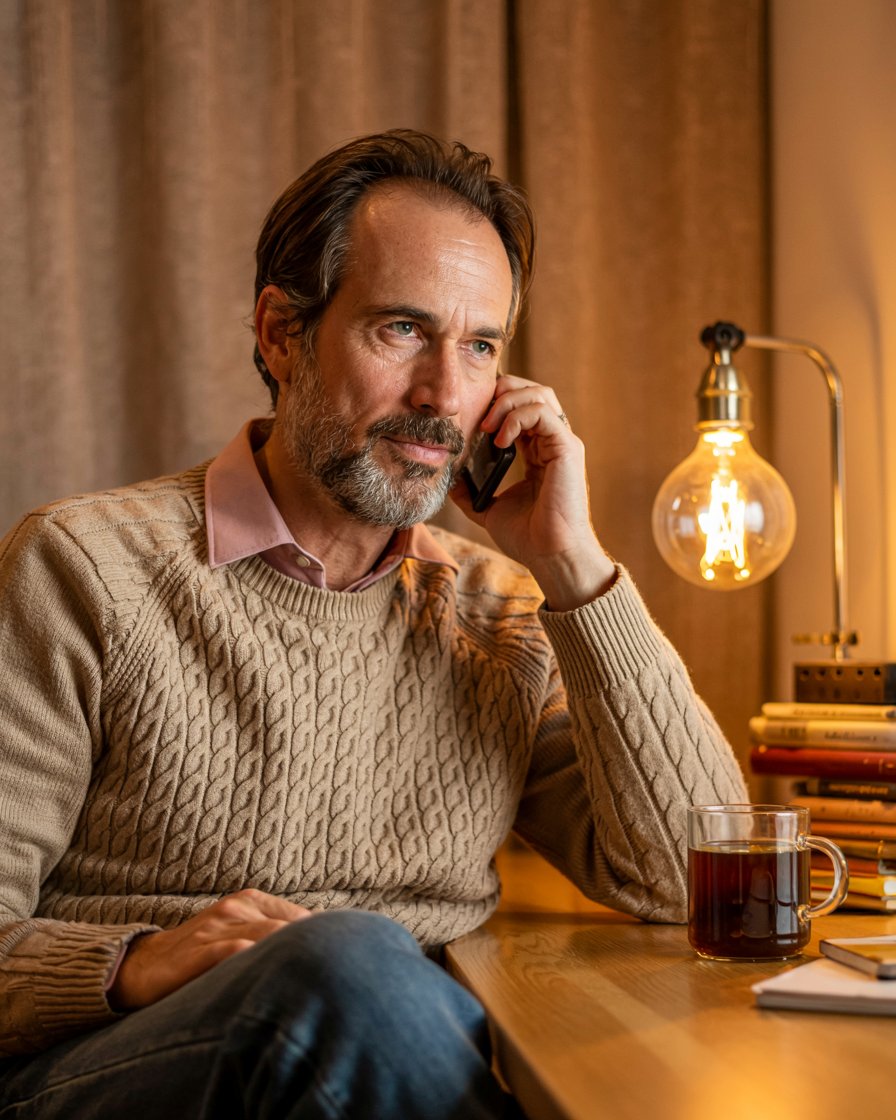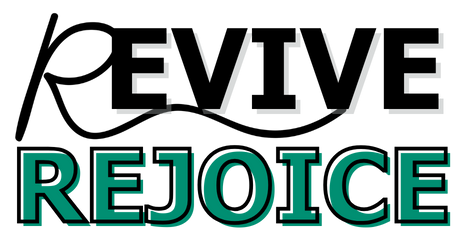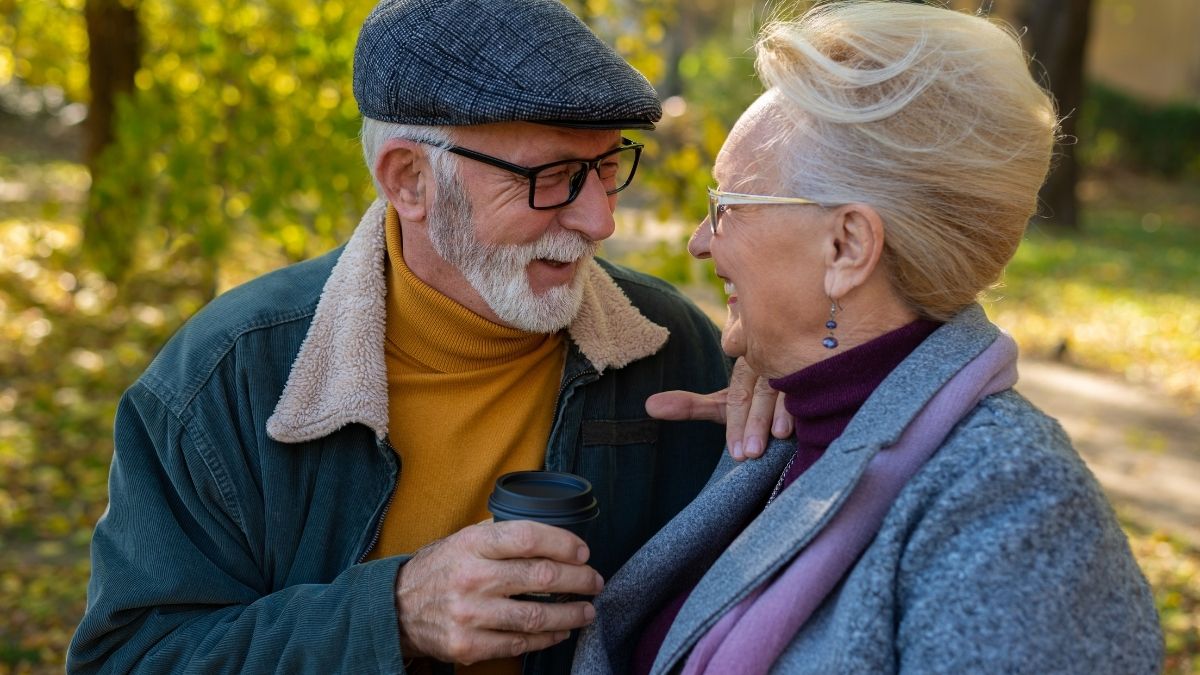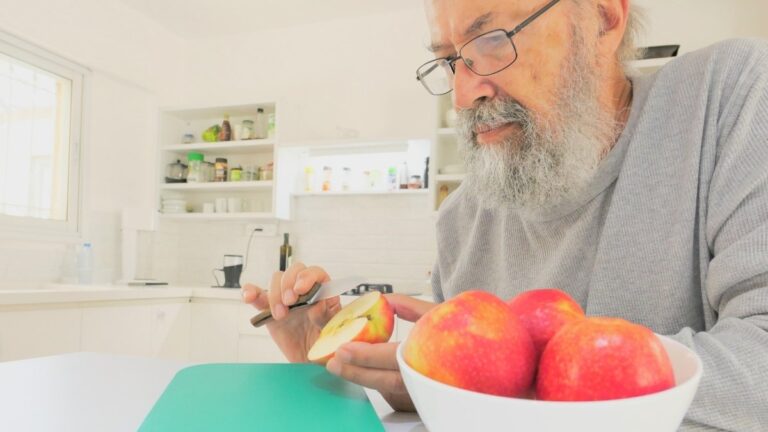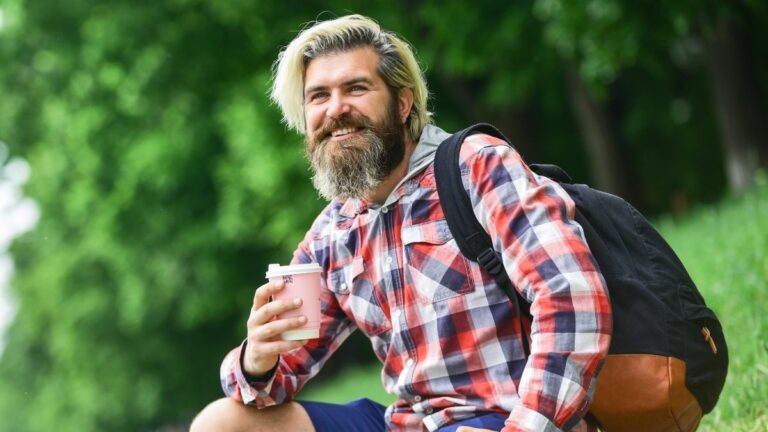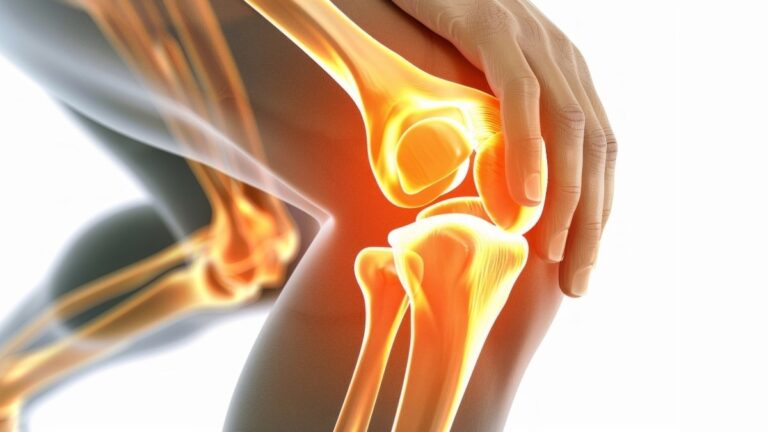The Lost Art of Living Well: 10 Traditional Habits That Beat Modern Wellness Trends (Your Great-Grandparents Was Right)
You toss and turn at night, then drag yourself out of bed feeling awful. Sound familiar? Here’s what’s wild: your great-great-grandparents probably slept better than you do.
They didn’t have fancy mattresses, white noise machines, or sleep apps. But they had something we lost—perfect alignment with their circadian rhythm.
Before the 1880s, when electric lights became common, people naturally followed the sun’s cycle. Their bodies produced melatonin right after sunset, making them sleepy around 9 PM.
They woke up refreshed at sunrise without alarm clocks. This wasn’t luck. It was biology working the way it’s supposed to work.
10 Old-School Life Hacks Science Says Actually Work
Your grandparents were onto something!
Rise & Sleep with Nature
Go to bed when it gets dark, wake up with sunrise
Aligns with your body’s natural 24-hour clock
Write by Hand
Use pen and paper instead of typing everything
Handwriting activates more brain areas than typing
Cook from Scratch
Make meals from real ingredients, not packages
Processed foods increase depression risk by 32%
Walk Everywhere
Use your feet as primary transportation
Walking boosts creativity by 60%
Read Real Books
Choose physical books over screens
Physical books improve comprehension by 25%
Talk Face-to-Face
Have conversations in person, not through screens
55% of communication is body language
Grow Your Food
Plant and harvest your own fruits and vegetables
Gardening reduces stress hormones by 25%
Repair Don’t Replace
Fix broken items instead of buying new ones
Repair activities activate meditation-like brain states
Use Natural Remedies
Try natural solutions for minor health issues first
Honey beats cough syrup for children’s coughs
Take Power Naps
Rest for 20-30 minutes in the afternoon
NASA found 26% performance boost after 26-minute naps
The Bottom Line
The best life hacks aren’t new apps or expensive gadgets—they’re time-tested wisdom your grandparents already knew!
1. Rise with the Sun, Sleep with the Moon (Circadian Rhythm Mastery)
You toss and turn at night. Then you drag yourself out of bed feeling awful. Sound familiar?
Here’s what’s wild: your great-great-grandparents probably slept better than you do. They didn’t have fancy mattresses or sleep apps. But they had something we lost.
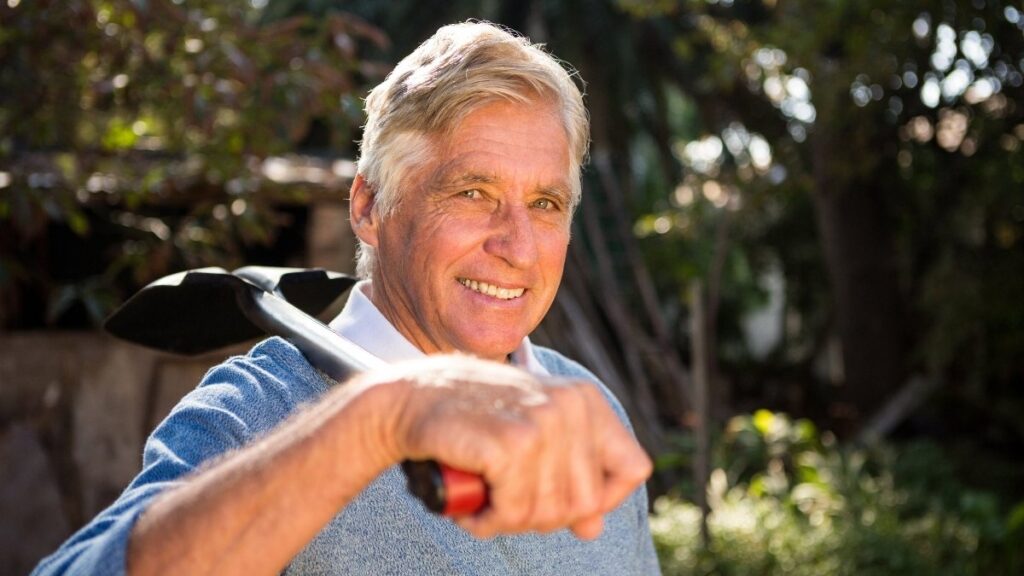
Before electric lights, people lived by natural sleep patterns. When the sun went down, they got sleepy. When it came up, they woke up. Their bodies followed a natural clock called the circadian rhythm.
Today, 70% of Americans don’t get enough quality sleep. We stay up scrolling phones. Blue light from screens tricks our brains into thinking it’s daytime. This messes up our internal clock.
Research shows blue light exposure before bed can delay sleep by hours. Your brain makes less melatonin, the hormone that makes you sleepy. So you lie awake staring at the ceiling.
But here’s the good news. You can reset your circadian rhythm in just two weeks. Studies prove that people who fix their sleep schedule see a 15% boost in brain power. They think clearer and remember more.
Traditional sleep habits work better than modern chaos. Go to bed at the same time every night. Wake up at the same time every morning. Yes, even on weekends.
Make your bedroom dark after sunset. Put away phones an hour before bed. In the morning, get sunlight on your face as soon as possible. This tells your body it’s time to be awake.
Your ancestors knew something we forgot. Natural sleep patterns aren’t old-fashioned. They’re based on how your body actually works.
Stop fighting your biology. Work with it instead.
2. The Lost Art of Handwritten Letters (Cognitive and Social Benefits)
Your brain works differently when you write by hand. Princeton University researchers found that students who took handwritten notes learned better than those who typed. When you write with a pen, your brain has to slow down. This extra time helps you think deeper and remember more.
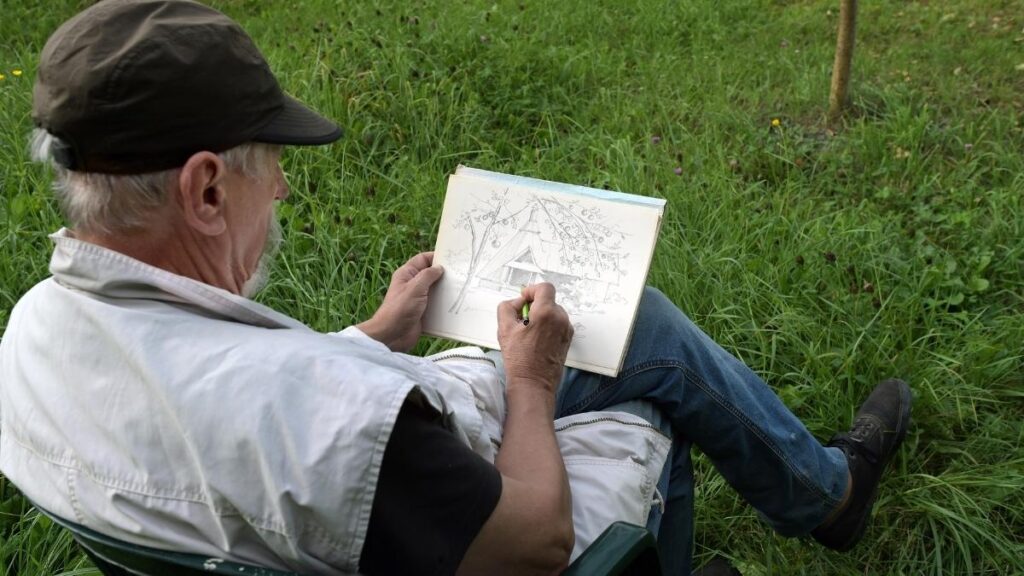
Handwriting benefits go beyond just learning. When you write a letter by hand, you create stronger emotional connections. The person reading it knows you spent time and effort. They can see your unique handwriting. This mindful communication feels more personal than a quick text or email.
Writing by hand also sparks creativity. Your thoughts flow slower, giving your brain time to make new connections. You might think of ideas you’d never have while typing fast on a keyboard.
Old-fashioned correspondence forces you to be more thoughtful. You can’t hit delete and start over easily. You have to think before you write. This creates a natural pause that our fast-paced world desperately needs.
Try writing one handwritten note this week. It could be a thank you card or just a note to a friend. Notice how different it feels from sending a text. Your brain will thank you, and so will the person who gets your letter.
3. Cook from Scratch, Not from Packages (Nutritional and Mental Health)
Your mental health suffers when you eat too many processed foods. Research shows that ultra-processed foods increase your risk of depression by 32%. These packaged meals are loaded with chemicals, sugar, and ingredients you can’t pronounce.

Home cooking benefits your mind and body in ways that go far beyond nutrition. When you cook from scratch, you know exactly what goes into your food. You control the salt, sugar, and fat. You can choose fresh, whole ingredients instead of preservatives.
Cooking becomes a form of stress relief. The repetitive motions of chopping vegetables or kneading dough calm your mind. You focus on the task at hand, which works like meditation. The smells and textures engage your senses in a positive way.
Traditional meal preparation also saves money. A home-cooked meal costs a fraction of restaurant food or processed convenience items. You can make large batches and have leftovers for days.
But here’s the best part: cooking brings people together. When you prepare food with family or friends, you create memories. Kids who help cook eat more vegetables and develop better relationships with food.
Start small. Pick one processed food you eat regularly and learn to make it from scratch. Maybe it’s salad dressing, bread, or pasta sauce. Your body and brain will feel the difference within weeks.
4. Walk Everywhere Possible (The Original Fitness Program)
Before cars took over, people walked everywhere. They didn’t need gym memberships or fancy equipment. Walking was simply how you got around. This active transportation kept people naturally fit and connected to their communities.
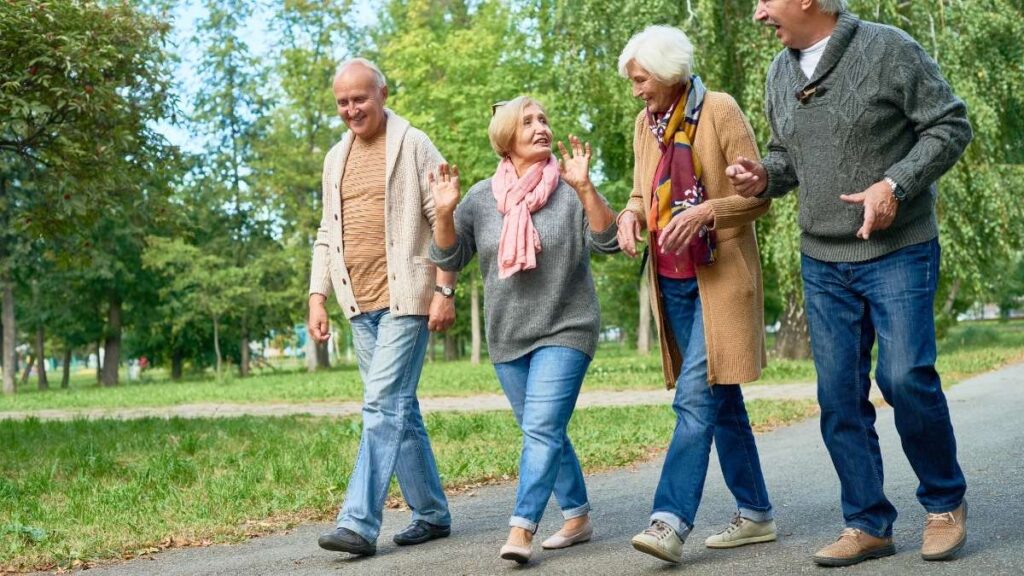
Modern science proves what our ancestors knew instinctively. Stanford researchers found that walking boosts creativity by 60%. When you walk, your mind wanders and makes new connections. Many great thinkers did their best work while walking.
Walking benefits extend far beyond physical fitness. Regular walks reduce anxiety and depression better than many medications. You get fresh air, sunlight, and a change of scenery. Your stress levels drop naturally.
Traditional exercise happened throughout the day, built into daily activities. This beats the modern approach of sitting all day, then trying to make up for it with an hour at the gym. Your body needs consistent movement, not intense bursts followed by long periods of inactivity.
Walking also connects you to your neighborhood. You notice things you miss in a car. You might meet neighbors or discover local businesses. This creates a sense of community that improves mental health.
Start by walking to nearby places instead of driving. The grocery store, library, or coffee shop might be closer than you think. Even a 10-minute walk makes a difference. Your body was designed to move regularly, not just during scheduled workouts.
5. Physical Books Over Screens (Deep Reading and Sleep Quality)
Your brain processes information differently when you read physical books. A Norway study showed that people understand 20-30% more when reading printed text compared to screens. Physical books benefits include better focus and deeper comprehension.
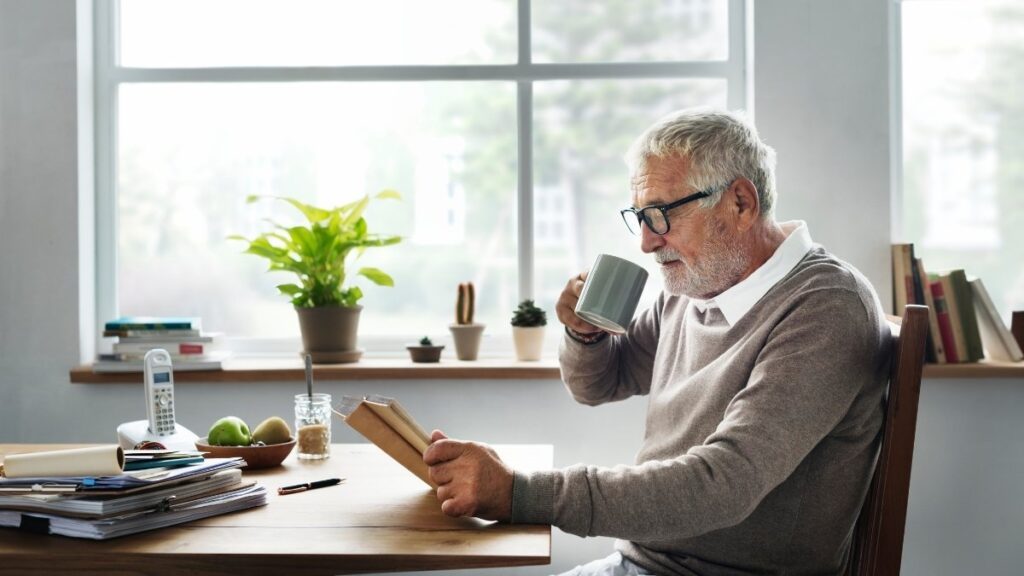
Screens hurt your sleep quality, especially when you read before bed. The blue light from tablets and phones tricks your brain into thinking it’s daytime. This delays your natural sleep cycle and makes it harder to fall asleep.
Physical books create a better reading experience. You can feel the pages, smell the paper, and see your progress as you flip through. These tactile experiences help your brain form stronger memories of what you read.
Screen-free reading also means fewer distractions. You can’t get notifications, check social media, or switch between apps. This focused attention leads to what researchers call “deep reading” – the kind that actually changes how you think.
Reading physical books before bed creates a calming ritual. Your brain learns that picking up a book means it’s time to wind down. This natural signal helps you relax and prepare for sleep.
Try reading a physical book for 30 minutes before bed instead of scrolling on your phone. Keep your bedroom free from screens. You’ll fall asleep faster and sleep more soundly. Your comprehension will improve too, making reading more enjoyable and rewarding.
6. Face-to-Face Conversation Over Digital Communication
You miss 55% of communication when you text instead of talking in person. Nonverbal cues like facial expressions, tone of voice, and body language carry most of the meaning in human interaction. Digital communication strips away these essential elements.

In-person communication builds deeper relationships and better social skills. When you talk face-to-face, you learn to read emotions, show empathy, and respond to subtle cues. These skills don’t develop through texting or video calls.
The average person checks their phone 96 times daily. This constant digital interruption shortens attention spans and reduces the ability to have meaningful conversations. Face-to-face conversation requires sustained focus and genuine engagement.
Digital communication often leads to misunderstandings. Without tone of voice or facial expressions, people misinterpret messages. This creates unnecessary conflict and stress. In-person conversations prevent many of these problems.
Real human connection improves mental health in ways that social media can’t match. When you spend time with people in person, your body releases hormones that reduce stress and increase happiness. This biological response doesn’t happen with digital interaction.
Try a digital detox experiment. Put your phone away during meals and conversations. Choose coffee dates over texting. Call friends instead of messaging them. You’ll notice how different and satisfying real conversation feels compared to digital communication.
7. Grow Your Own Food (Mental Health and Nutrition)
Gardening works like therapy for your mind and body. Research shows that gardening reduces cortisol levels by 25%. Cortisol is your body’s main stress hormone. When you work with soil and plants, your stress naturally decreases.

Home gardening benefits go far beyond stress relief. When you grow your own food, you know exactly how it was treated. No pesticides, no mysterious chemicals, just fresh produce you can trust. Home-grown vegetables taste better and contain more nutrients than store-bought versions.
Gardening therapy connects you to natural cycles and seasons. You learn patience as you wait for seeds to grow. You develop a deeper appreciation for food and where it comes from. This connection to your food sources improves your relationship with eating.
Growing your own food also provides regular physical activity. Digging, planting, weeding, and harvesting work different muscle groups. This gentle exercise fits naturally into your routine without feeling like a chore.
You don’t need a big yard to start. Herbs grow well in small pots on a windowsill. Tomatoes thrive in containers on a balcony. Even apartment dwellers can grow some of their own food.
Start with easy plants like lettuce, herbs, or radishes. These grow quickly and give you early success. As you gain confidence, try more challenging vegetables. You’ll be amazed how much better fresh basil tastes compared to the dried stuff from the store.
8. Repair Instead of Replace (Mindfulness and Environmental Impact)
Americans throw away 81 pounds of clothing every year. Most of these clothes could be repaired, but we’ve lost the habit of fixing things. Repair culture teaches valuable skills and saves money while helping the environment.
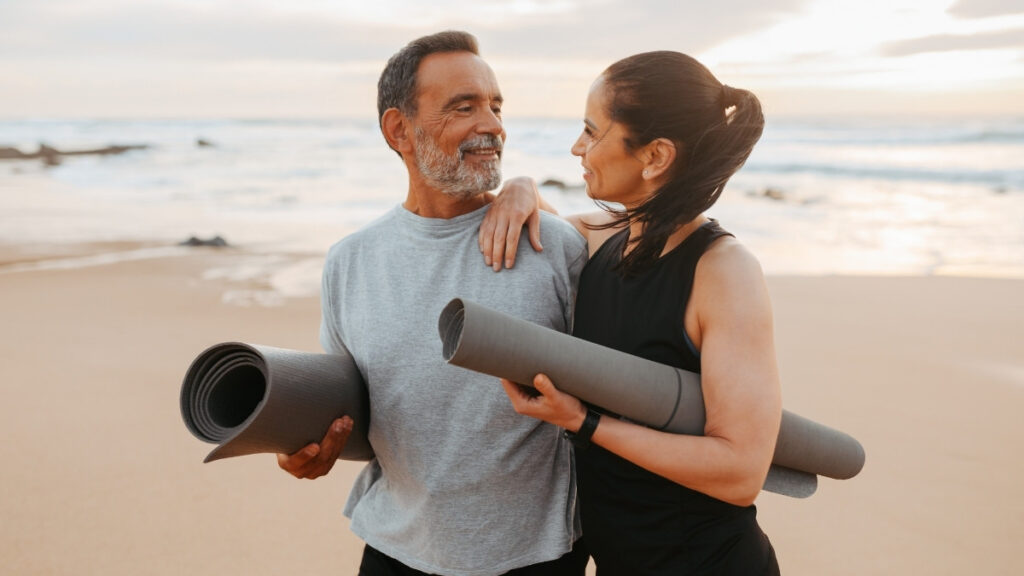
Mending clothes becomes a form of mindfulness practice. When you sit down to sew a button or patch a hole, you focus completely on the task. This concentrated attention calms your mind and reduces stress. The repetitive motions work like meditation.
Fixing things builds self-reliance and problem-solving skills. Each repair teaches you something new about how objects work. You gain confidence in your abilities and become less dependent on buying new items or hiring others.
The economic benefits of repair vs. replacement add up quickly. A $2 sewing kit can extend the life of dozens of clothing items. Learning basic repair skills for appliances, electronics, and household items saves hundreds of dollars per year.
Sustainable living starts with using things longer instead of constantly buying new ones. Every item you repair instead of replace reduces waste and saves the energy needed to make new products.
Start with simple repairs like sewing buttons, gluing loose soles on shoes, or patching small holes in clothes. Watch online tutorials to learn new skills. Keep basic repair supplies handy: needle and thread, super glue, and a small toolkit. You’ll find repair work surprisingly satisfying.
9. Natural Remedies for Minor Ailments (Evidence-Based Traditional Medicine)
Many traditional remedies work better than modern alternatives. Research proves that honey is more effective than cough syrup for children’s coughs. Ginger reduces nausea better than many prescription drugs. These natural remedies have been tested by both time and science.

Traditional medicine forms the foundation for many modern drugs. Aspirin comes from willow bark. Many cancer medications started as plant compounds. The difference is that home remedies science shows you can often get the benefits without the side effects.
Natural remedies work best for minor health issues like colds, headaches, or digestive problems. They’re not meant to replace medical treatment for serious conditions. Know when to use natural approaches and when to see a doctor.
Common effective natural remedies include: chamomile tea for better sleep, peppermint for upset stomachs, and echinacea for immune support. These have solid research behind them and few side effects when used properly.
Avoiding over-medication for minor issues protects your health long-term. Antibiotics lose effectiveness when overused. Pain medications can become addictive. Many people reach for pills when simple home remedies would work just as well.
Keep a natural medicine cabinet with proven remedies: raw honey for coughs, ginger root for nausea, chamomile tea for relaxation. Learn which conditions respond well to natural treatment and which require medical care. Always tell your doctor about any herbs or supplements you use regularly.
10. The Power Nap Revolution (Energy Management vs. Caffeine Culture)
Traditional cultures understood natural energy cycles better than we do. The afternoon siesta wasn’t laziness – it matched how human bodies actually work. Your energy naturally dips between 1-3 PM, regardless of how much sleep you got the night before.
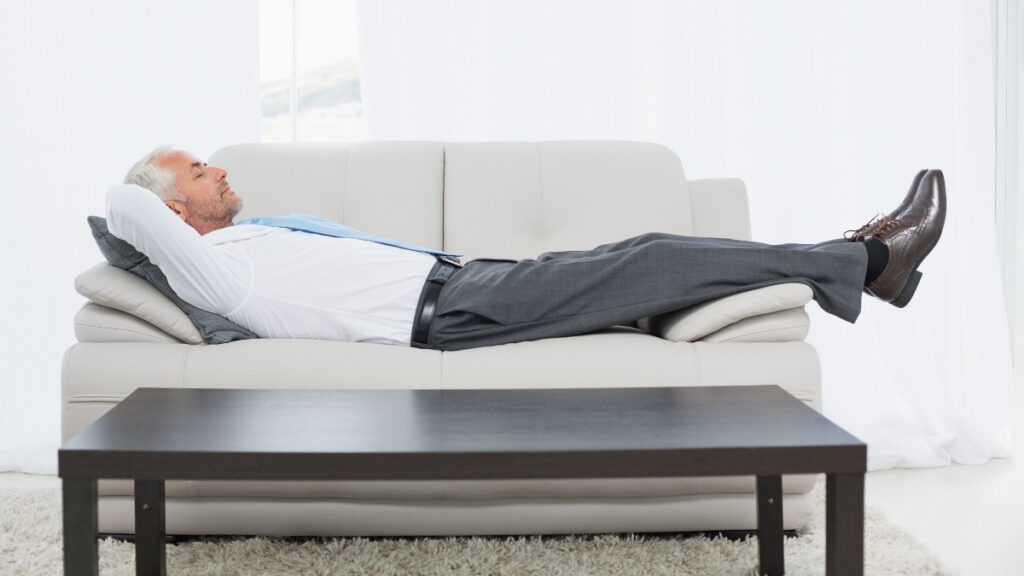
NASA researchers found that pilots performed 26% better after taking 26-minute naps. Power naps work because they refresh your brain without entering deep sleep. The key is keeping naps short – 20 to 30 minutes maximum.
Afternoon naps beat caffeine for sustainable energy. Coffee gives you a quick boost followed by a crash. Naps restore your energy naturally without side effects. You wake up refreshed instead of jittery.
Natural energy cycles work better than fighting them with stimulants. When you nap during your natural low point, you align with your body’s rhythms instead of fighting them. This leads to better nighttime sleep and more consistent energy levels.
Modern always-on culture ignores these natural patterns. We drink coffee and push through fatigue instead of taking short breaks. This creates chronic tiredness and reduces productivity over time.
Try a 20-minute nap between 1-3 PM when you feel tired. Set an alarm so you don’t oversleep. Find a quiet, dark place to rest. Even if you don’t fall asleep, closing your eyes and relaxing helps. You’ll wake up more alert than if you had pushed through with caffeine.
The Bottom Line: Your Grandparents Had It Right
You don’t need the latest app or expensive gadget to live better. The answer was sitting at your grandma’s kitchen table all along.
These ten habits aren’t trendy wellness hacks. They’re basic human behaviors that worked for thousands of years. Then we forgot them in about fifty years.
Science just caught up to what your great-grandparents already knew. Walking beats treadmills. Real books beat screens. Homemade food beats processed junk. Face-to-face talks beat text messages.
Here’s the thing: you don’t have to do all ten habits at once. That’s a recipe for failure.
Pick two that sound easiest. Maybe start writing your grocery list by hand. Or take a 20-minute walk after lunch. Try them for two weeks. See how you feel.
Once those become normal, add another habit. Then another.
Your body will thank you. Your mind will feel clearer. Your stress will drop. Your sleep will improve.
The best part? These habits cost nothing. No subscription fees. No fancy equipment. No complicated instructions.
Just simple wisdom that’s been working since before your grandparents were born. Sometimes the old ways really are the best ways.
